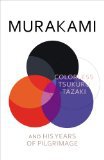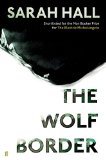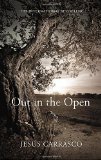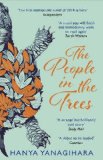 Shortlisted for the 2015 Independent Foreign Fiction Prize
Shortlisted for the 2015 Independent Foreign Fiction Prize
Translated from the Japanese by Philip Gabriel
Five words from the blurb: friends, school, death, connections, reason
Tsukuru is 36, but as a teenager he was part of a group of five friends. One day they stopped talking to him and he felt abandoned. He hasn’t seen them for 16 years, but continues to be haunted by the mysterious way he was ostracised from the group. His girlfriend sees the pain this is causing and persuades him to track down his friends to discover the real reason that they blocked him out of their lives all those years ago.
I think I read this at exactly the right time in my life. I am also 36 and, coincidentally, was also part of a group of five in school. I married one of them, so am well aware of the way relationships effect the dynamics within a group. Last week we went to a wedding and the five of us were together again for the first time in fifteen years (although we have seen them all individually occasionally since then). Colorless Tsukuru and His Years of Pilgrimage perfectly captures the feelings of meeting people that you were once very close to. Discovering how old friends have changed is a strange thing, and imagining how small decisions from the past could have changed the course of your life is hard to get your head around.
Murakami delves into a range of emotions, explaining them beautifully:
Jealousy – at least as far as he understood it from his dream – was the most hopeless prison in the world. Jealousy was not a place he was forced into by someone else, but a jail in which the inmate entered voluntarily, locked the door, and threw away the key. And not another soul in the world knew he was locked inside. Of course if he wanted to escape, he could do so. The prison was, after all, his own heart. But he couldn’t make that decision. His heart was as hard as a stone wall. This was the very essence of jealousy.
The first 80 pages of this book were very slow, but then Tsukuru started to meet his friends and the plot picked up pace. I was completely absorbed by the mystery and loved the way each character had a slightly different relationship with the others – I don’t think I’ve read many other books that have captured teenage group dynamics with this realism.
This book didn’t contain any of the strange mythology that Murakami is famous for, but it provides an insight into the lives of ordinary Japanese people. It isn’t necessary to know anything about the culture before reading this book, so is a good choice for those looking to try Japanese literature for the first time.
Overall, this is a strong book that deserves its place on the IFFP shortlist. The ending was perfect and I highly recommend it to anyone who has lost touch with old friends.

.









